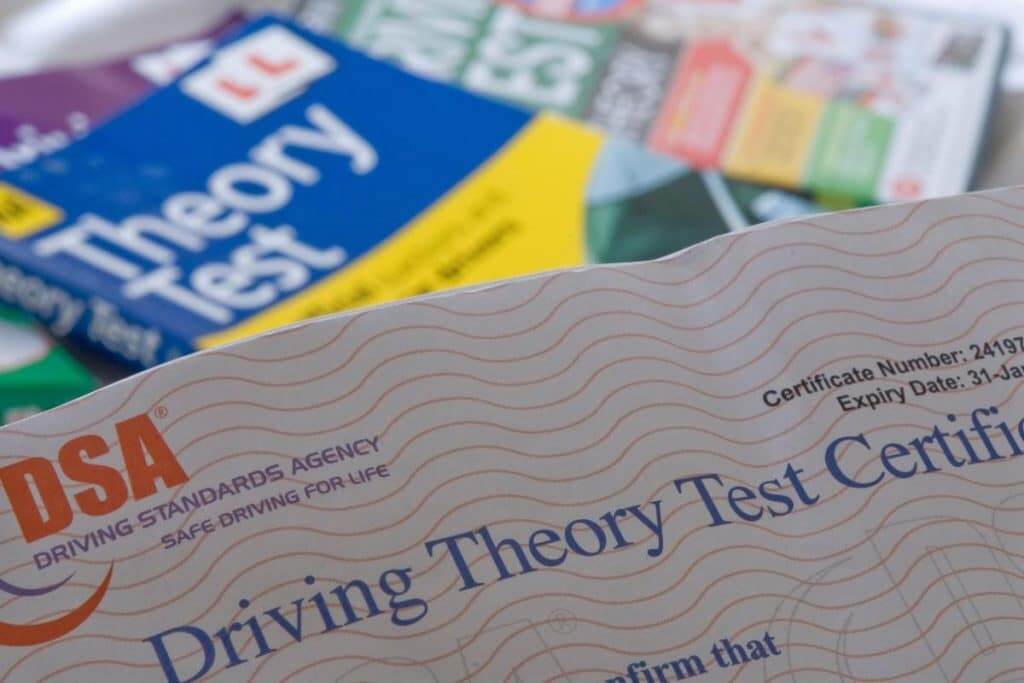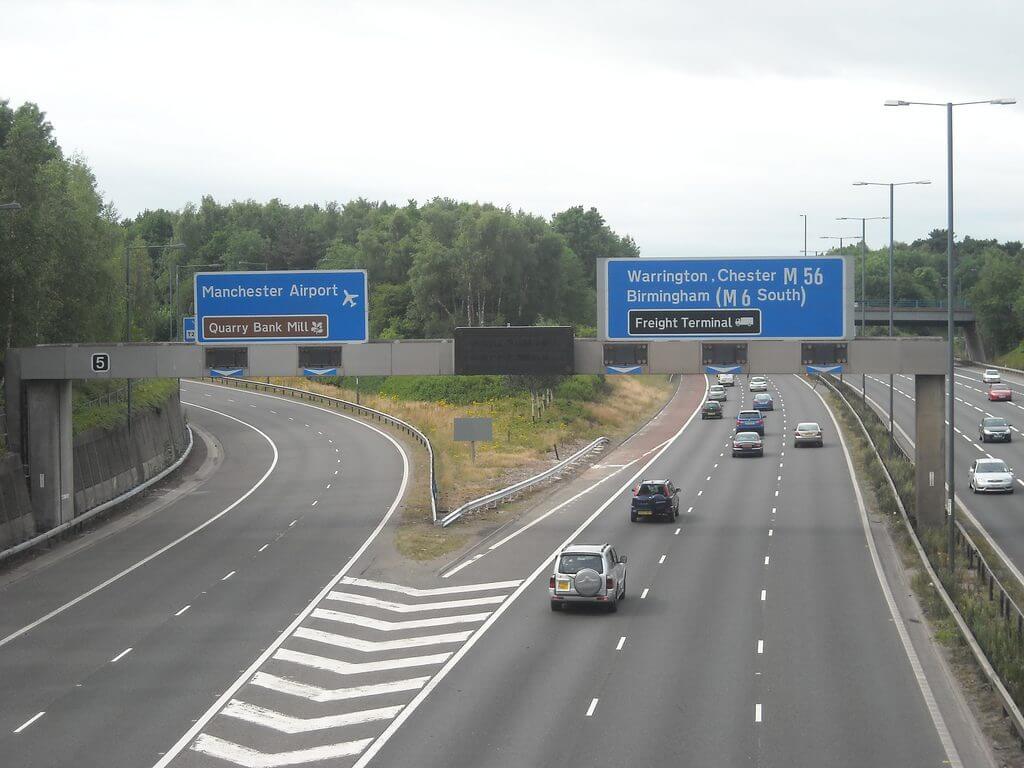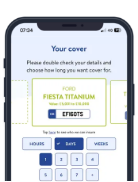When you first get into a car as a learner, all you want to do is get to the point of passing your test as quickly as possible. You want to be on the road, in your own car as fast as you can so you can get some independence.
One of the best ways to learn to drive fast is to get as much practice as possible between your instructed lessons. Not only will you gain extra experience, but you can practice everything you’ve learned with your instructor without paying more.
First things first though – get yourself a provisional licence, a qualified driving instructor, and ideally a car owned by a friend or family member that you can practice in between lessons.
How long does it take to learn to drive?
This will depend on the learner and how quickly they get used to driving, but the DVSA (Driving & Vehicle Standards Agency) says the average learner needs around 47 hours with an instructor and a further 22 hours of practice with friends or family.
This means that if you’re having one hour-long lesson per week with an instructor and two hours of practice outside of lessons, you could be test ready in around five months.
If, however, you want the quickest way to learn to drive, you should consider increasing the number of hours on the road you have.
A great way to get that extra practice without having to pay for more frequent or longer lessons is by increasing the amount of extra driving you do with your parents or other family members. This will allow you to increase the number of hours you’re driving each week and help you learn to drive more quickly.
Increasing your out of lesson practice time to even four hours a week could mean you’re test-ready in just three months.
Tips for learning to drive fast
Here are just some of the ways that you can learn to drive fast:
- Apply for your provisional licence as soon as you’re eligible
- Download the DVLA theory test app to get in plenty of theory practice
- Revise your theory test as much as possible
- Book your theory test as soon as you feel ready
- Get as much time behind the wheel as possible
- Practice new parts of driving between lessons
- Only book your test when you feel ready
Learning to drive with parents: the quickest way to learn to drive?
Unless you’re super lucky, it’s unlikely you’ll have your own car to learn to drive in. Most learners will need to learn to drive in a parent’s car.
Not only will learning to drive in a parent’s car help speed up the whole process, but it also provides more flexibility as you’re not relying on your instructor’s schedule. Whenever you and your parent have some time, even if it’s just one day here and there throughout the week, you can simply hop in the car and get that crucial extra practice.
Learning to drive with parents can also help keep the costs of learning to drive down.
With the average cost of a driving lesson in the UK at anywhere between £23-£30 depending on the area or offers available, upping the number of private lessons you have per week can soon add up.
Getting extra practice from your parents can help you increase the number of hours on the road, without having to increase the amount you spend learning to drive.
This crucial extra time earned in between lessons will ultimately help save you money and speed up the time it takes to learn to drive.
With this extra practice, you will grow in confidence and skill over time before you have to pay for an instructor to finally prepare you for your driving test.
Learning to drive in your parents’ car is a great way to speed up learning to drive, but it’s important to make sure your parents or anyone else you want to practice with are eligible to do so.
Who can teach me to drive?
There are certain rules about who can and can’t be in the car supervising a learner driver. To be able to teach you to drive, your friend, parent, or other family members must be:
- Aged 21 or over
- A qualified driver for at least three years
- Qualified to drive the type of vehicle you’re learning in
If you only plan on having private lessons (which isn’t advised as instructor-led lessons are incredibly useful), you must make sure that whoever is teaching you is up to date with traffic laws and knows what will be required for you to pass your test. If you’re learning with an instructor alongside learning to drive with parents, it is helpful for the parent to communicate openly with the instructor to ensure you pass as quickly as possible.
You will also need to make sure that they have the right insurance to let you use their car. This may also change who can teach you to drive as certain insurers will have restrictions on who can teach a learner driver.
With Tempcover for example, the driver supervising you would need to:
- Be aged over 25
- Have held their full UK Driving Licence for at least three years
- Have been a permanent UK resident for a minimum of three years
- Have not had any DR coded motoring convictions in the past five years
What’s the best car insurance when learning to drive?
This will depend on how you’re planning to learn to drive, but for many learner drivers, temporary learner driver insurance could be the ideal option, let’s look at the pros and cons of each option for learner driver insurance.
| Full Annual Cover | Parents Insurance | Temporary Learner Driver Insurance |
| Pro – You’re fully insured for a whole year | Pro – Often cheaper than taking out a whole 12-month policy | Pro – Flexible cover as and when you need it from just 12 hours at a time up to 28 days |
| Pro – You’re insured after you pass your test | Pro – Insured to use your parents’ vehicle as and when needed | Pro – You only pay as and when you need it with no commitments or long-term contracts |
| Con – Your premiums will likely be higher than average as young drivers are the most expensive age group to insure | Con – Being a named driver will likely increase the price they pay for their insurance | Pro – No impact on the existing cover, it’s a separate standalone policy |
| Con – If you pass your test before the 12 months is up, you will have to pay either a cancellation fee or admin fee to update your details | Con – This will increase again if you pass your test and want to continue to be insured to use the vehicle | Pro – No impact on parents’ No Claims Discount |
| Con – If you have an accident while driving their vehicle, they could lose their No Claims Discount | Pro – Changing which parent you want to practice with? Just choose what car you want to practice in each time you get a policy | |
| Con – You may not get the full level of cover as a named driver | Pro – Fully comprehensive cover as standard on all temporary learner driver policies | |
| Con – Once you pass your driving test, your policy will automatically end. You will then need to look for ongoing annual cover |
Do I need insurance to learn to drive?
Yes, to drive on UK roads, even as a learner, you will need to have learner driver insurance in some form. Without the right insurance, you could face an unlimited fine, a driving ban, and penalty points on your licence.
For quick and easy temporary learner driver insurance, choose Tempcover and get the cover you need to learn to drive fast. Find flexible policies to suit your schedule and only pay for cover as and when you need it.
It takes just a few minutes to get short term learner driver insurance. Get a quote now.



